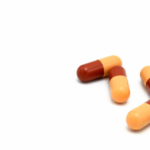Ashwagandha (Withania somnifera), also known as the winter cherry, has been gaining traction with consumers around the world owing to its wide-encompassing benefits. This evergreen shrub is a native of India, the Middle East and some parts of Africa. Some of the benefits of this Ayurvedic herb include stress-busting, cognitive function, men’s health, immune support, sleep, metabolic wellness, adrenal function, sports performance and much more. Commercially available as a capsule, extract or powder today, it is used to treat a wide number of ailments today. (1)
History of the herb
The root, in particular, of Ashwagandha has enjoyed an important and exalted position in Ayurveda, where it is described as a general health tonic that anybody can use. In fact, the benefits of this herb are frequently mentioned and well-documented in the Vedas. In Sanskrit, the word Ashwagandha means the ‘smell of the horse’, which is perhaps a reference to its sharp, potential properties as a strength enhancer. (2)
Some of the important maladies it is used for include (3):
- Stress and anxiety
- Heart health
- Fatigue
- Pain
- Skin conditions
- Diabetes
- Arthritis
- Epilepsy
- Alzheimer’s
- Cancer
- It is proven to show improvement when it comes to Attention Deficit Hyperactivity Disorder (ADHD) in children.
Dosage
The dosage depends on the condition of the concerned patient. There is no standard dosage based on modern clinical trials.
Different studies have indicated different dosages – while some studies suggest that taking 250–600 mg per day can reduce stress, other findings have used much higher dosages. The capsule dosages often contain between 250 mg and 1,500 mg of Ashwagandha. (3)
Side effects
Although it is usually considered safe, some of the potential side effects include:
- Patients can usually tolerate Ashwagandha in small-to-medium doses. However, consuming large amounts can lead to stomach ache, diarrhea, nausea and vomiting. This may be due to irritation of the intestinal mucosa. (2)
- Ashwagandha can lower the blood sugar level in patients whose blood sugar levels are normal, possibly leading to hypoglycemia in those that are on medication. (4)
- It can also affect blood pressure and thyroid hormone level. (4)
- As this supplement causes the immune system to become more active, it could increase the symptoms of auto-immune diseases. (4)
- It is also advised to stop taking Ashwagandha for at least two weeks before and after surgery as it may slow down the central nervous system. (4)
- Pregnant and breastfeeding women are advised not to consume Ashwagandha as there is some evidence of the herb causing premature delivery and miscarriage. (4)
For almost three decades now, Shubham Pharmachem has been a top domestic and export organization in the country when it comes to quality medicines. Its rich product portfolio also includes Active Pharmaceutical Ingredients (API), herbal extracts, nutraceutical ingredients, cosmetic ingredients and other life-saving medication.
This reputed brand is trusted by patients, chemists, hospitals, as well as its strong clientele, globally. Highly customer-oriented, the organization believes in quality and timely supply of superior medicines at economical prices. With innovation at its core, the company is forever striving to deliver unmatched technology and customer service to make better medicines and therapies for patients, including those suffering from life-threatening illnesses.
For more information, visit www.shubham.co.in
Disclaimer:
Shubham Pharmachem’s blog posts have been written with the information gathered from approved medical journals and websites online. Our research and technical team strive to provide relevant information through such articles. We strongly advise readers to not consume or administer any medication without prior consultation with their doctor.
References:
- Nutra Ingredients [online]. Available at: https://www.nutraingredients-usa.com/Article/2016/03/30/An-herb-to-watch-Ashwagandha-science-growing-consumer-recognition-and-sales
- MONQ [online]. Available at: https://monq.com/eo/nootropics/ashwagandha-history-importance/
- MedicalNewsToday [online]. Available at: https://www.medicalnewstoday.com/articles/318407
- HealthifyMe [online]. Available at: https://www.healthifyme.com/blog/ashwagandha-benefits-side-effects-recipes/








